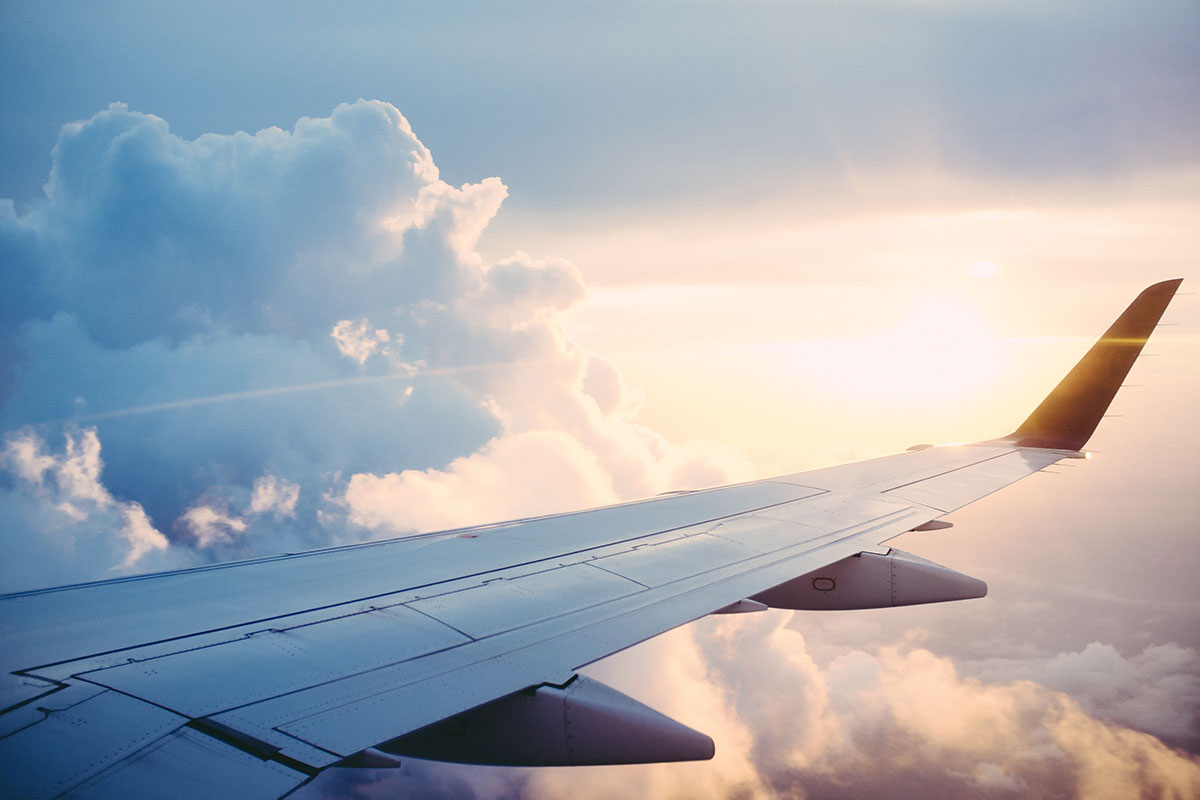How to Minimise the Effects of Jet Lag

The symptoms of jet lag are a cruel inhibitor of holiday fun times. The term refers to a range of implications experienced in the days following air travel through time zones, which can include nausea, the feelings of sleepiness and alertness at unusual times, performance difficulty and even gut-related issues.
Thankfully, there are ways to reduce the damage caused by throwing your body clock out of sync to catch up to your destination. One expert who knows a thing or two about these methods is human sleep and fatigue specialist Dr Katharina Lederle.
“The phenomenon illustrates how a rapid change in the timing of light exposure affects your internal clock and the various behavioural and psychophysiological processes it governs,” says Dr Lederle.
Here, we’ve called on her wisdom to discover exactly how to dissipate jet lag’s ill effects so that you can rest easy at your destination.
Jet lag preparation before you travel
“Depending on the direction you’re travelling in, you can start to shift your light exposure pattern and bed- and wake-up times while you’re still at home, to prepare for your destination’s new light/dark cycle,” says Dr Lederle “Light in the early evening will delay your internal body clock, which is to say that rhythms and processes will begin later, whereas light in the late or early morning will advance your clock so that your natural rhythm starts earlier.”
If you’re travelling east, she recommends going outside for 20 minutes as soon as you wake up to expose yourself to sunlight if you can, and in the evening, do the opposite, keeping lights dim and leaving your devices with LED screens out of sight. You should also go to bed a little earlier than usual, even if you don’t get to sleep right away.
Westerly travellers, however, should do the opposite, staying up later and keeping the lights on in the evening while avoiding light as much as possible in the mornings, which effectively works to shift your body clock backwards.
“It’s not always this straightforward, though,” Dr Lederle points out. “If you’re travelling east over multiple time zones, for example, it could be better to delay rather than advance your body clock depending on your internal time at your arrival point. If you arrive at your destination during what would have been your departure destination’s night time, your clock might delay rather than advance as desired.” That’s where melatonin can prove effective.
Melatonin is a hormone produced by the pineal gland of the brain, sometimes called the “hormone of darkness”. As a supplement, it is often used for the short-term treatment of trouble sleeping, including jet lag.
“The most widely accepted method for taking melatonin to reduce the impact of jet lag is to take it in the afternoon and expose yourself to light in the early morning for a few days before your trip,” says Dr Lederle. For westward flights, it’s best to take melatonin in the mornings ahead of heading the aforementioned light exposure advice.
Other tips to minimise jet lag
- Aside from careful consideration to your exposure to light, Dr Lederle also highlights the importance of a number of other factors to begin your trip as well-rested as possible to reduce the stress on your body while you travel.
- Stay hydrated during your flight – planes have extremely low humidity so you’re likely to feel parched more intensely than on the ground, which can induce dehydration-related fatigue.
- Avoid caffeine and other stimulants during the flight. Not only do their effects intensify at high altitude, causing a jittery feeling, but they’ll also further dehydrate the body.
- It can be better to fly during the daytime (of your departure destination) to avoid disruption to your regular night-time sleep, unless you’re flying in business or first class where it’s generally easier to sleep restfully.
- When you arrive at your destination, try to go to bed when the locals do. If you can’t, accept that this is simply part of having a normally-functioning body clock.
- There are apps that can also potentially help avoid the impact of jet lag, including Timeshifter and Entrain.
_
Dr Katharina Lederle has a PhD in Human Circadian Physiology & Behaviour from the University of Surrey. Through her work with Clockwork Research, she has advised national and international airlines and emergency helicopter services on sleep and fatigue, and also provides sleep consultancy to a number of businesses. She is a co-founder of Somnia and author of “Sleep Sense: Improve Your Sleep, Improve Your Health”


















